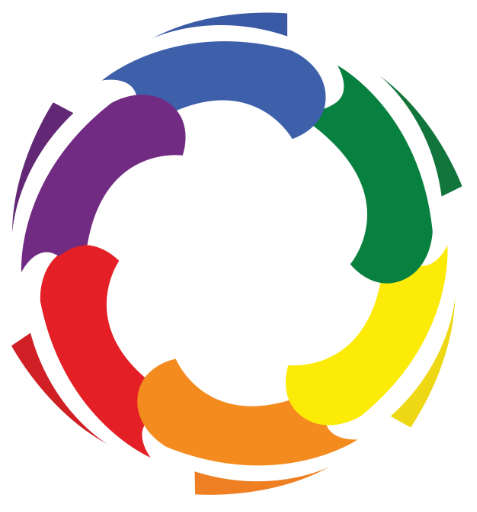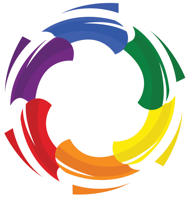A total of 36 workshops on the key themes of the conference, Peace, Justice and Human Rights, Developments and Democratization, were held across 13 venues.
Our representatives on the ground reported that many offered a comprehensive and detailed exploration of the individual issues. These were excellent chances for our reps on the ground to lobby groups to acknowledge the existence of intersectionalities within their constituencies and include SOGIE within their considerations and recommendations.
Our own workshop, Equality, Democracy and Justice in ASEAN = SOGIE Inclusion in the ASEAN was a great opportunity to clarify what sexual orientation and gender identity and expression (SOGIE) referred to – seems like there was much confusion as to what this meant! Presenters Binh Le Quan (iSEE Vietnam), Hla Myat (Colors Rainbow, Burma), Ging Cristobal (IGLHRC Asia Program, Philippines) and Vien Tanjung (HerLounge, Indonesia) presented on behalf of the ASEAN SOGIE Caucus.
They maximized our chances to explain the pressing need to repeal laws that criminalize SOGIE in ASEAN countries, how establishing national level mechanisms and regional human rights instruments ultimately promote and protect the equal rights of all people and emphasized the importance of depathologizing SOGIE and promoting the psychosocial well-being of all ASEAN peoples.
The atmosphere of many of the workshops was generally quite supportive – several CSOs possessed a raised awareness of LGBTIQ issues and were careful to use the right language. Having made our presence felt since the APF Conference in Surabaya, Indonesia in 2010, we saw an increase this year in the number of quality allies representing us and speaking up on our behalf. This is the reality of inclusion and integration, making it easier for us to monitor the changing situations and attitudes in each ASEAN country.
However, many others revealed a disregard for intersectionalities and inclusion and outright rejected the discussion of such issues. Others paid lip service by mentioning the issues but failed to elaborate specifically on how they might implement such considerations or reflect on the implications of their inclusion.
As anticipated, women’s groups were divided on the inclusion of SOGIE, with Siriporn Skrobanek, Chairperson of Foundation for Women and member of the ASEAN Women’s Caucus taking a more pragmatic approach in saying, “We would like to include SOGIE, but as if ASEAN will consider LGBTIQ in its considerations!” This speaks to an easy dismissal of LGBTIQ concerns as loaded minority issues. They evidently think the issues will detract from the leverage that they have gained in advocating for issues of violence against women, which they classify as more persistent, material concerns such as heterosexual marital rape and domestic violence in rural communities.
Perhaps their instruments to measure regional and national outcomes have yet to effectively reflect violence and discrimination against LBTQ people. Perhaps as with many marginalized issues, more documentation is needed to justify the significance of inclusion.
Other workshops such as Violence Against Women (VAW) and Legal Reform and Social Protection For All took on a more promising approach with the inclusion of SOGIE. Specifically, the usage of gender neutral terms in legal reform included protection from violence in same sex relationships and discrimination in various contexts, including the private and public arenas. When we spoke to the legal consultants from the Gender Equality Network, Brenda Belak and Jolen Paclarin, they shared some of their strategies to deal with the conflicts that local anti-gay laws in Myanmar (Section 377) presented. They planned to sweep in SOGIE-inclusive language into the legal reforms at later stages to extend provisions and protection from violence to LBTQ women as well.
Multiple opportunities to share concerns and engage with the groups like this presented themselves. In the workshop on the Sexual Rights and Human Rights of Young People, women’s groups, ARROW and Likhaan, did well to talk about providing comprehensive sexual education for youth but were unaware that LGBTIQ youth had specific sexual rights needs.
Our rep, Ron De Vera, shared with both groups about the various challenges, speaking about LGBTIQ youth homelessness, the lack of access to hormone replacement therapy for transgender youth, the absence of protection from discrimination and the stigma and lack of sensitivity limiting healthcare seeking behaviours of LGBTIQ youth.
Others still allowed for more interactivity in their inclusiveness, with the workshop on Sex Work using a board game presentation to unpack the red tape that sex worker communities face in effecting change and experiencing its results. Using accessible language and representing sex workers from diverse SOGIE, ethnicities and nationalities, they explored how various sex worker communities organized and shared strategies nationally and regionally.
That’s all from the folks on ground for today – I think the sweaty activists all need a bit of a drink! More updates on the closing ceremonies and the drafting of the ASEAN People’s Forum statement tomorrow.



